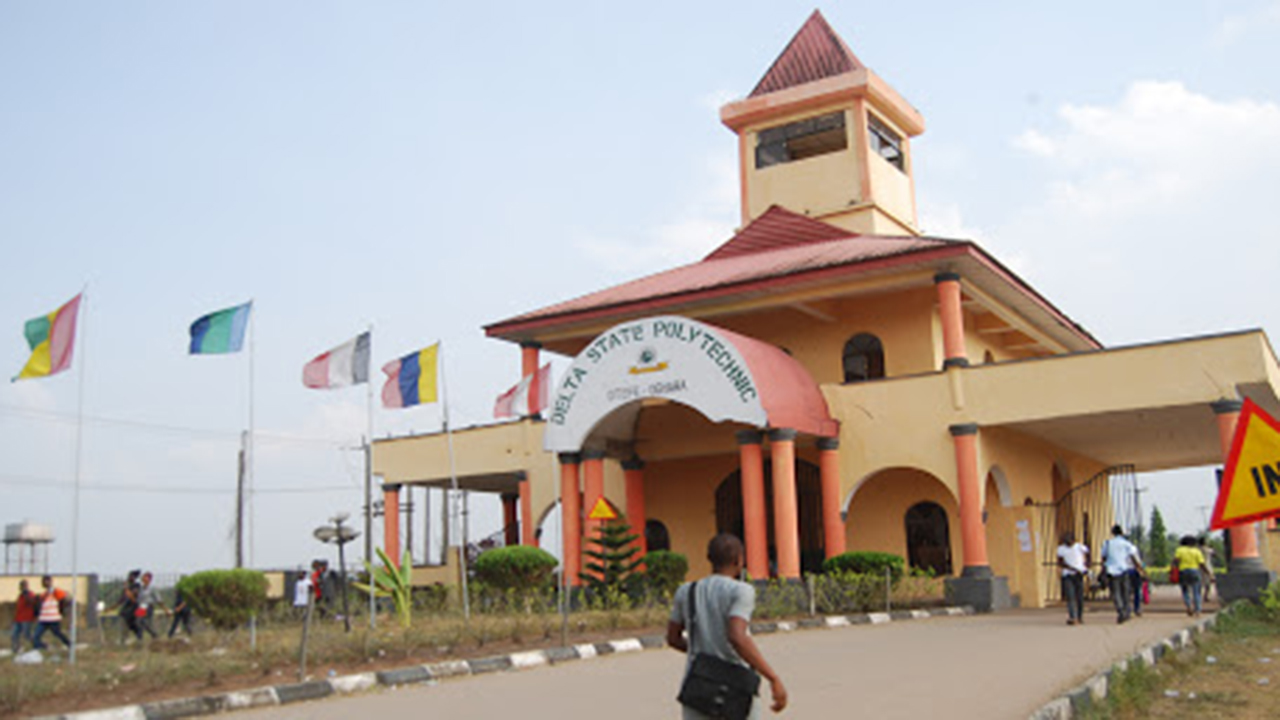Within the disparate realms of agronomy, astronomy, aviation, banking, biosciences, defence, education; finance, law, materials science and medicine,to manufacturing, pharmaceutics, scientific innovation, R&D, technology et al, the exponential deployment and transformative reach of artificial intelligence appear limitless.
In varying degrees, it impacts virtually all aspects of human interactions with smart machines, straddling the Global North, Global South, outer space and subsea domains; as well as creatively dislocating the orthodoxy of 9 am to 5 pm and fixed work patterns.
Pray, what’s the monstrous Leviathan called artificial intelligence? The answer is inherent in the statement because if it is “artificial”, it necessarily means that it is non-biological and non-human, because, in the context of its development, it is computer-based and developed intelligence. However from that proposition, emerges the philosophical and practical question as to whether artificial intelligence can ever be sharper than the intelligent humans who provide the intelligent feedstock, upon which artificial intelligence is anchored.
In the Dynamic Intersections of Economics, Foreign Relations, Jurisprudence and National Development (2023), Ojumu advanced the hypothesis that “the analytical philosophical underpinnings of human intelligence and artificial intelligence are closely intertwined, in that both analyse the mind, neuro-informatics, reason and sentience or perceptive capacity.” That proposition invokes the inference that human intelligence and artificial intelligence will remain contested realms of indivergent stratagem to address problems confronting the world in the 21st Century and beyond.
Russell and Norvig, in Artificial Intelligence: A Modern Approach (2021), opine that artificial intelligence is an aspect of computer science analytics, which researches and shapes software and systems to enable machines to evaluate their domains, using learning and intelligence to execute programmes which improve their potential for accomplishing complex goals. In short, artificial intelligence aspires to create and deploy machines which can analyse, predict, reason and adapt just like people or even seek to outperform human intelligence.
As with all human inventions, artificial intelligence (AI) can be deployed for virtuous or vicious outcomes.Some far-reaching virtuous examples illustrate the point. Take automation and efficiency, where AI automates repetitive tasks, streamlining processes, whilst enhancing productivity; enhanced decision-making, where AI analyses complex data, providing insights that support informed decision-making; or indeed personalisation and customisation, where AI facilitate tailored experiences in fields like education, healthcare and marketing.
AI-powered chatbots and virtual assistants offer 24/7 support, thereby enhancing customers’ experiences, choice and satisfaction. AI’s striking impacts is equally evident in driving cross-sectoral competitiveness, innovation and economic development. Medical diagnosis, drug innovation, vaccine development, knowledge dissemination, unique patient treatment plans, forensic science, healthcare value chains and related healthcare advancements thrive under the agency of AI. The World Economic Forum forecasts that the global healthcare market will exceed $187billion by 2030, at a critical juncture given a projected shortage of approximately 10 million physicians, midwives and nurses, counterpoised against an ageing population and desperately high social care needs.
No less important is the purview of environmental sustainability, where AI catalyses resource usage, cuts waste and promotes eco-friendly practices; and accessibility, where AI-powered tools assist persons with disabilities and inclusivity. Plus, AI is pervasive in cybersecurity, where AI-powered systems detect and prevent cyber threats, mitigate the risk of hacking, thus enhancing security, widely defined.
Cybersecurity is interesting. Because, its vicious deployment, highlights the real and potential dangers of the ignoble ends of AI when utilised by belligerent states, hackers, saboteurs, scammers, spivs and unethical users. Besides, cybersecurity threats are constantly evolving which imperils the integrity of even the most robust and sophisticated AI systems, thus making it challenging to consistently stay ahead of the curve of AI virtuousness.
Other significant concerns here include the high implementation and operational costs of embedding highly effective cybersecurity measures; complexity because off-the-shelf systems scarcely function optimally given unique commercial, geostrategic, national and consumer requirements. Equally, human error is a lingering AI cybersecurity concern because its integrity is only as effective as its weakest link: after all human error routinely compromises security.
Data security concerns pertaining to AI cybersecurity are real given slapdash policies on data collection and surveillance in some jurisdictions. There is of course the danger of overreliance on AI which heightens complacency, sub-optimal intelligent human oversight and intellectual laziness.
To put this in perspective, overreliance on AI and ineffective risk management systems, triggered a major global IT glitch on Friday, July 19, 2024 which caused chaos, delays and over 3000 flight cancellations across Nigeria, Europe, the United States and other international destinations following a “defect found in a single content update for Windows”from the cybersecurity company, CrowdStrike.
The glitch also affected banks, broadcasting organisations and commercial entities worldwide, with Microsoft estimating its adverse impacts on 8.5 million computers globally! The glitch raises seminal cross-jurisdictional issues concerning overreliance on AI, the absence of enduringly effective risk management, quasi-market dominance by leading technology firms and its ramifications for innovation and potential multi-billion-dollar claims for compensation by affected individuals, passengers and businesses.
Notwithstanding AI’s impressive allure, additional legitimate questions have been posed concerning its real and potential impacts on employment, over-dependence on high-quality data, which is difficult to obtain, and at times, biased and discriminatory; ethical uses, autonomy, integrity and privacy. According to the McKinsey Global Institute, by 2030, approximately 800 million jobs could be lost worldwide due to automation.
Even so, AI is going nowhere neither are cybersecurity threats! The challenge is for society to adapt to its transformative opportunities in various realms of human endeavour whilst ensuring effective, ethical and legal safeguards to protect everyone without stifling AI’s innovative potential.
On the part of sovereign nations, which implies critical technology-based upskilling and capacity building, the right laws and policies are in place for the evolution of super-intelligent AI in emerging decades. Furthermore, investment in education, retraining programmes and job-redefinition initiatives are non-negotiable as justified by the unique circumstances of each nation’s strategic industrialisation priorities.
On the flip side, is the compelling inference of a commitment to upskilling, life-long learning, creative problem-solving, strategic thinking and people skills. After all, McKinsey further opines that by 2030, 140 million new jobs could be created in various industries.
The smart money is on governments, policymakers, scholars, universities, research institutions and industrialists, primary and secondary schools, and strategic individuals proactively investing in AI, business intelligence, super-intelligent cybersecurity, data sciences, machine learning, medicine, programming, robotics, software engineering and technology.
The logic is simple. AI has led to and will continue to: facilitate the creation of new job opportunities; increase productivity by automating repetitive tasks, releasing human workers to focus on more complex and creative tasks; and enhance decision-making thereby reducing the risk of human error and its inherently costly outcomes.
The foregoing accords with the principles of the Fifth Industrial Revolution or Industry 5.0, a new and emerging phase of industrialisation that optimises human working interfaces with advanced technology and AI-powered robots to enhance workplace processes.
Underpinning those principles is a shift from commercial entities’ sole focus on profit maximisation, which remains important, but which will now encompass, more human interactions, increased resilience and an improved focus on sustainability.
At the end of the day, artificial intelligence tool is not a horsewhip which should be innovatively leveraged, vis-à-vis robust cybersecurity, for the benefit of humanity. There’s no turning back!
Ojumu is the Principal Partner at Balliol Myers LP, a firm of legal practitioners and strategy consultants in Lagos, Nigeria, and the author of The Dynamic Intersections of Economics, Foreign Relations, Jurisprudence and National Development.


















